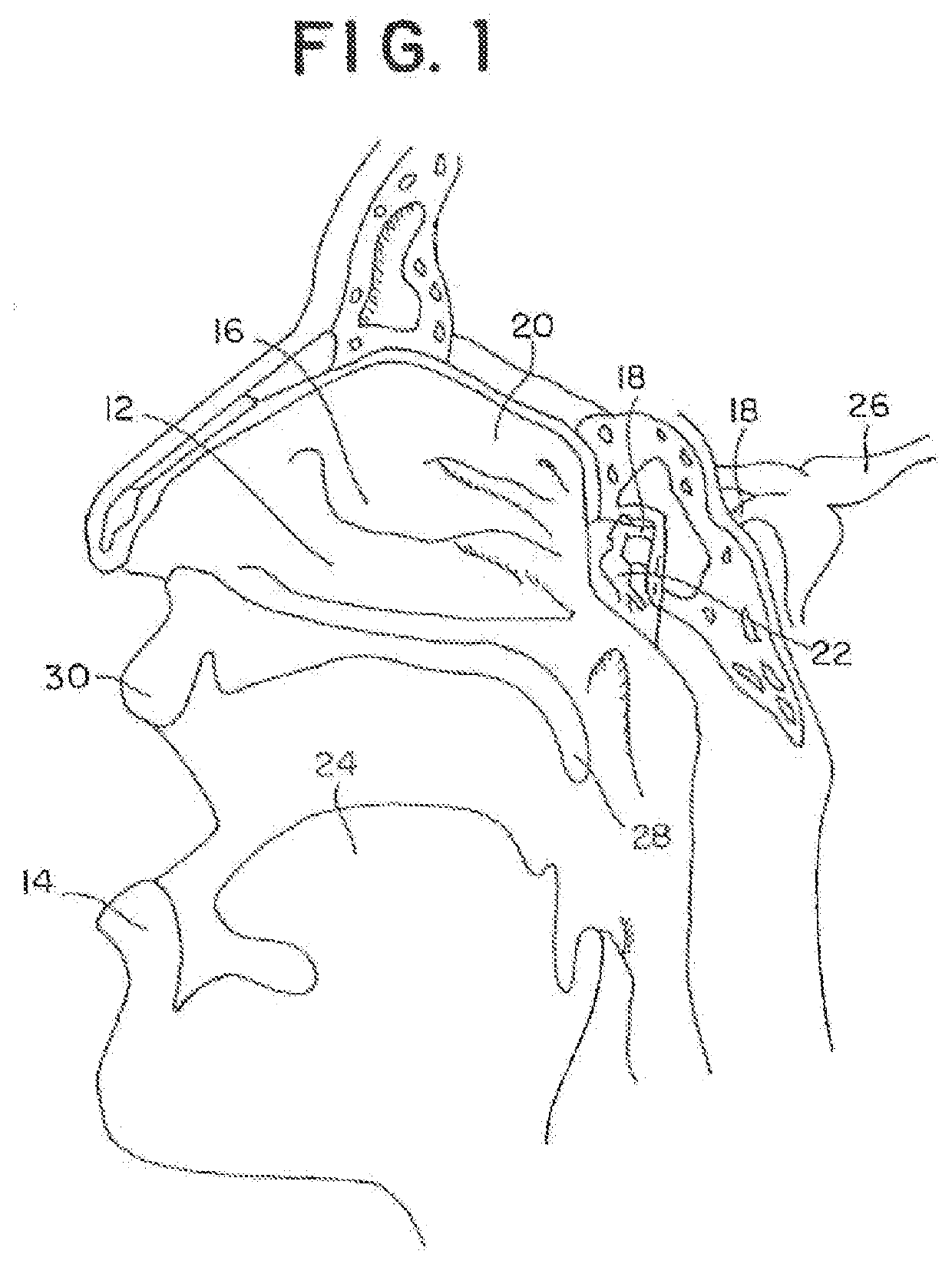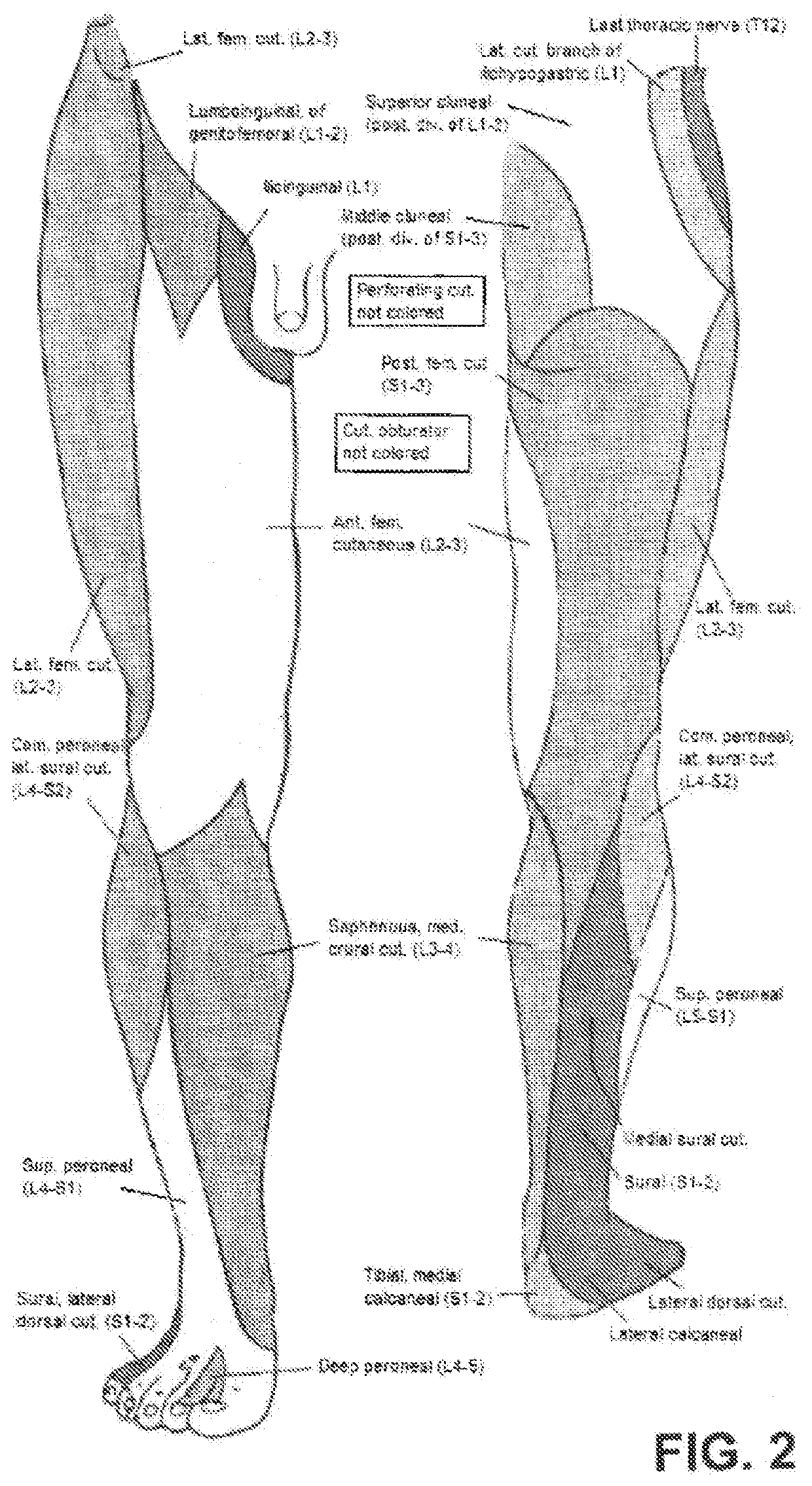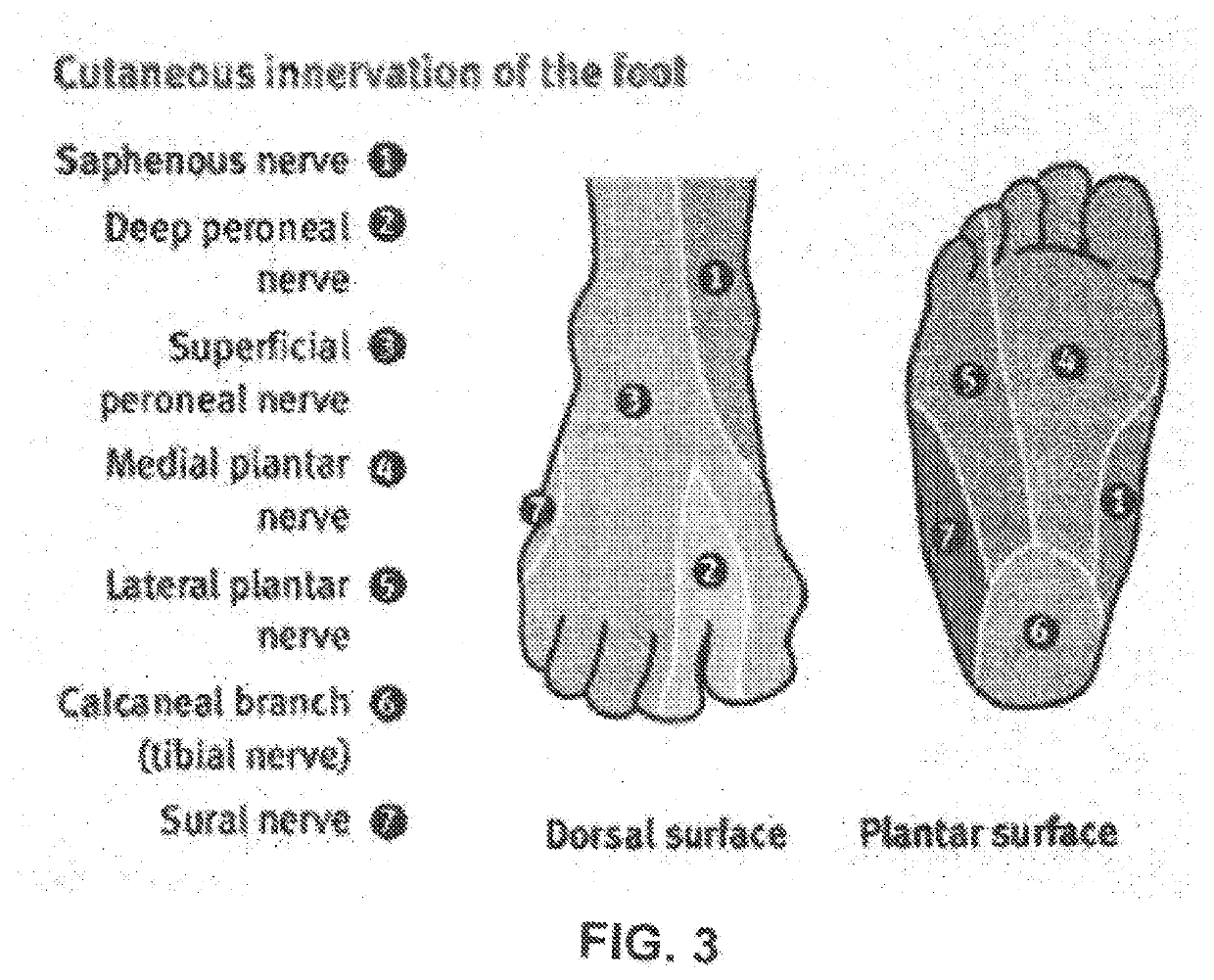Materials and methods for treating neuropathies and related disorders including those involving a keystone nerve
a neuropathic and related disorder technology, applied in the field of neuropathies and related disorders, can solve the problems of severe impairment of function and pain and dysesthesia, poor response, difficult treatment, etc., and achieve the effect of improving the composition of the invention
- Summary
- Abstract
- Description
- Claims
- Application Information
AI Technical Summary
Benefits of technology
Problems solved by technology
Method used
Image
Examples
example 1
[0228]A female patient with pain and decreased range of motion for many months following repair of a torn rotator cuff, was treated using a fan like injection of lidocaine 1% (3 ml) merely in the vicinity of the suprascapular nerve, hitting small fibers in the area. The patient showed remarkable improvement in pain and range of motion.
[0229]This block differs from classic suprascapular block in that the area around the nerve was targeted and treated, rather than the nerve itself. This procedure was easier to perform than trying to block the suprascapular nerve directly, which would have been much more difficult to target or specific, direct treatment. In terms of neurostimulation, or blocking with energy sources such as light, laser, infrasound or electricity, it means that transcutaneous methods can work well by targeting the area around a major nerve, or merely within its general area of innervation, and not necessarily the nerve itself. It also shows that a regional sympathetic b...
example 2
[0230]A female patient with severe leg and foot pain for several years due to prior surgical trauma resulting from an initial bunionectomy and other follow-up surgeries was treated by a saphenous nerve injection of ropivacaine 0.25% (5 ml) after exquisite tenderness was noted on palpation of the saphenous nerve greater than 14 cm proximal to the level of her foot trauma. However, much of her symptomatology was in the distribution of other nerves. Indeed, she had motor dysfunction of the toes and her saphenous nerve is a purely sensory nerve. Within 10 minutes, the patient reported almost complete relief of pain and had normalized sensation and strength in the distribution of other peripheral nerves, including the peroneal nerves. She could walk like she had not in many years. Surprisingly, we see that block of one nerve with purely sensory function decreased symptoms across the distribution of other nerves.
example 3
[0231]A female patient with CRPS and severe pain, including pins and needles sensation in her right hand for over 20 years, presented with these symptoms and major discoloration in her right arm due to compartment syndrome many years ago and could barely open and close her fist. After a single treatment with bupivacaine 0.25% (3 ml) in the fanlike distribution of the radial nerve, she felt dramatically better and could open and close her hand and make and maintain a fist. Neurotrophic findings of decreased temperature, edema, allodynia, discoloration and severe restriction of range of motion decreased dramatically. This shows that CRPS of a limb can be treated by a compartment-type of peripheral block not previously done for single peripheral nerves.
PUM
| Property | Measurement | Unit |
|---|---|---|
| time | aaaaa | aaaaa |
| concentration | aaaaa | aaaaa |
| concentration | aaaaa | aaaaa |
Abstract
Description
Claims
Application Information
 Login to View More
Login to View More - R&D
- Intellectual Property
- Life Sciences
- Materials
- Tech Scout
- Unparalleled Data Quality
- Higher Quality Content
- 60% Fewer Hallucinations
Browse by: Latest US Patents, China's latest patents, Technical Efficacy Thesaurus, Application Domain, Technology Topic, Popular Technical Reports.
© 2025 PatSnap. All rights reserved.Legal|Privacy policy|Modern Slavery Act Transparency Statement|Sitemap|About US| Contact US: help@patsnap.com



